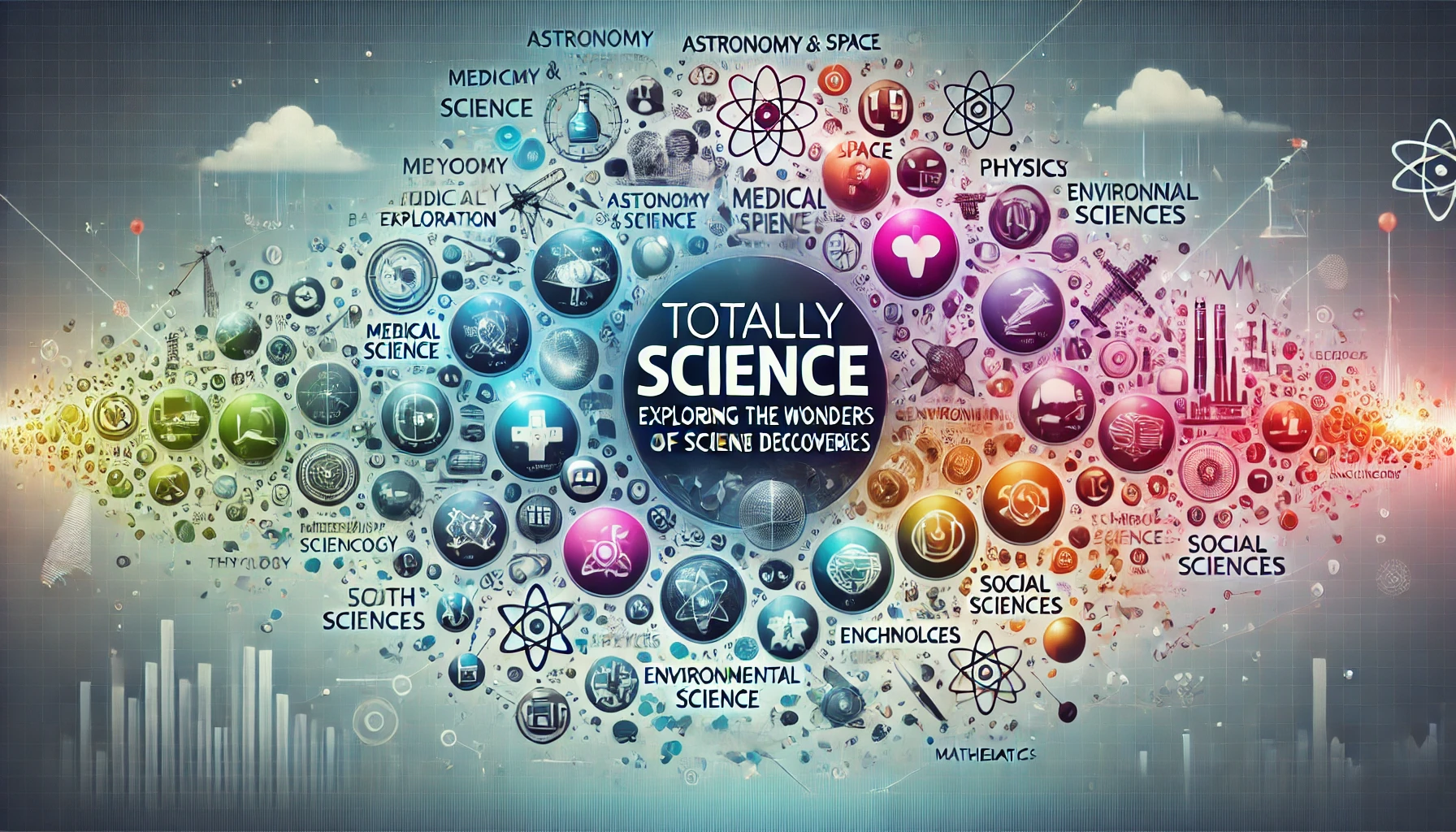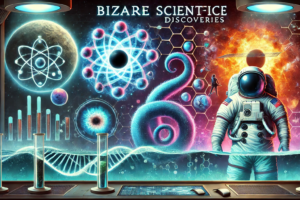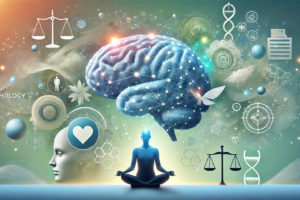Totally Science: Exploring the 7 Wonders of Scientific Discoveries
Totally science encompasses the vast, fascinating world of scientific discoveries, breakthroughs, and innovations. By exploring totally science, we can understand the universe better, improve our lives, and drive technological progress. In this comprehensive guide, we delve into various scientific fields, highlighting key discoveries and their impacts on our world.
Totally Science; The Marvels of Astronomy and Space Exploration
Astronomy and space exploration have always captivated human imagination, revealing the wonders of the cosmos.
- Hubble Space Telescope: Launched in 1990, the Hubble Space Telescope has provided stunning images and invaluable data, transforming our understanding of the universe.
- Mars Rovers: NASA’s Mars rovers, such as Curiosity and Perseverance, have explored the Martian surface, uncovering evidence of past water and potential signs of life.
- Exoplanet Discoveries: The discovery of exoplanets, planets outside our solar system, has opened new possibilities for finding habitable worlds and understanding planetary formation.
Internal Link: For more insights on the impact of space exploration, check out our article on The Future of Space Travel: Innovations and Challenges.
Breakthroughs in Medical Science
Medical science continuously evolves, leading to breakthroughs that improve health and save lives.
- CRISPR Gene Editing: CRISPR technology allows precise editing of DNA, offering potential cures for genetic disorders and advancements in personalized medicine.
- mRNA Vaccines: The development of mRNA vaccines, such as those for COVID-19, has revolutionized vaccine production, enabling rapid responses to pandemics.
- Cancer Immunotherapy: Immunotherapy treatments harness the body’s immune system to fight cancer, providing new hope for patients with previously untreatable cancers.
External Link: To stay updated on the latest medical advancements, visit Medical News Today.
Environmental Science and Climate Change
Environmental science plays a crucial role in understanding and mitigating climate change, ensuring a sustainable future.
- Climate Modeling: Advanced climate models help scientists predict future climate changes, guiding policy decisions and mitigation strategies.
- Renewable Energy: Innovations in renewable energy sources, such as solar, wind, and hydroelectric power, are reducing our dependence on fossil fuels.
- Conservation Efforts: Conservation initiatives, such as reforestation and wildlife protection, aim to preserve biodiversity and restore natural habitats.
Advancements in Physics and Chemistry
Physics and chemistry drive technological progress and deepen our understanding of the natural world.
- Quantum Computing: Quantum computing promises to solve complex problems beyond the reach of classical computers, revolutionizing fields like cryptography and materials science.
- Nanotechnology: Nanotechnology involves manipulating matter at the atomic and molecular levels, leading to breakthroughs in medicine, electronics, and materials science.
- Particle Physics: Discoveries in particle physics, such as the Higgs boson, enhance our understanding of fundamental forces and particles that make up the universe.
Innovations in Technology and Engineering
Technology and engineering innovations shape our world, driving progress and improving our quality of life.
- Artificial Intelligence: AI technologies, such as machine learning and neural networks, are transforming industries, from healthcare to finance, by automating tasks and providing data-driven insights.
- Robotics: Advances in robotics are leading to the development of intelligent machines capable of performing complex tasks in various sectors, including manufacturing, healthcare, and space exploration.
- Internet of Things (IoT): IoT connects everyday devices to the internet, enabling smarter homes, cities, and industries through real-time data collection and analysis.
Internal Link: For more on technological innovations, read our article on The Role of AI in Digital Marketing: Opportunities and Challenges.
Understanding Earth Sciences
Earth sciences, including geology, meteorology, and oceanography, provide insights into our planet’s processes and resources.
- Plate Tectonics: The theory of plate tectonics explains the movement of Earth’s lithospheric plates, leading to the formation of mountains, earthquakes, and volcanic activity.
- Weather Prediction: Advances in meteorology improve weather forecasting accuracy, helping communities prepare for extreme weather events and mitigate their impacts.
- Ocean Exploration: Oceanographic research uncovers the mysteries of the deep sea, revealing diverse ecosystems and informing conservation efforts.
The Impact of Social Sciences
Social sciences study human behavior and societies, informing policies and practices that enhance social well-being.
- Behavioral Economics: Behavioral economics explores how psychological factors influence economic decisions, leading to more effective policies and interventions.
- Sociology: Sociology examines social structures and relationships, providing insights into issues like inequality, education, and public health.
- Psychology: Psychological research advances our understanding of the human mind, improving mental health treatments and promoting well-being.
The Role of Mathematics in Science
Mathematics underpins all scientific disciplines, providing the tools and frameworks necessary for scientific inquiry and technological innovation.
- Statistical Analysis: Statistical methods enable scientists to analyze data, draw conclusions, and make predictions across various fields.
- Theoretical Models: Mathematical models describe complex systems, from climate patterns to financial markets, guiding research and decision-making.
- Computational Mathematics: Computational techniques solve large-scale problems in physics, engineering, and computer science, driving advancements in these fields.
The Future of Science: Emerging Fields and Technologies
The future of science holds exciting possibilities as emerging fields and technologies push the boundaries of knowledge.
- Synthetic Biology: Synthetic biology combines biology and engineering to design and construct new biological parts, devices, and systems.
- Space Mining: Space mining explores the potential of extracting resources from asteroids and other celestial bodies, supporting space exploration and economic growth.
- Neurotechnology: Neurotechnology develops tools and techniques to interface with the nervous system, leading to advancements in brain research and medical treatments.
By exploring the vast world of totally science, we can appreciate the incredible discoveries and innovations that shape our understanding of the universe and improve our lives. Focus on astronomy and space exploration, medical science breakthroughs, environmental science, and advancements in physics, chemistry, technology, and engineering. Embrace the insights from earth sciences, social sciences, and mathematics to drive progress and foster a sustainable, equitable future. Stay informed about the latest scientific developments to harness the power of knowledge and innovation. So we should keep exploring totally science to expand our knowledge.




